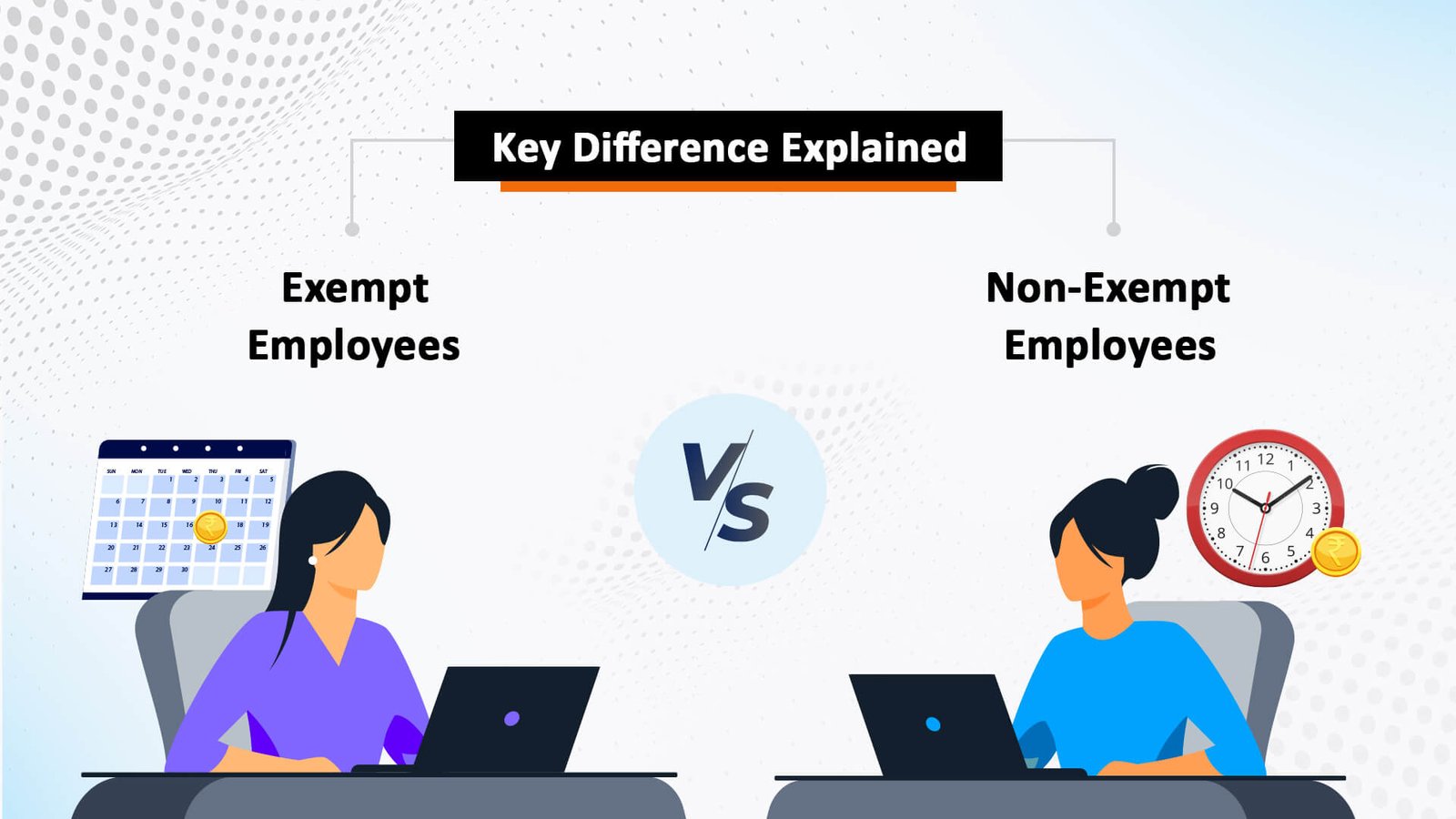New Hampshire labor laws are in place to safeguard workers and establish equitable workplace policies. From avoiding discrimination and providing safety to maintaining rights of privacy, these laws have actual repercussions for companies that do not comply.
New Hampshire employers need to keep pace with changing labor regulations to maintain compliance and avoid penalties, and achieve a compliant work environment. Let’s check the State of New Hampshire Labor Laws to know more.
Standard Working Hours And Wages
New Hampshire imposes tight regulations regarding work time, breaks, overtime compensation, and other labor practices. Employers have to proceed with caution to adhere to these rules and maintain their business and employee bases.
Minimum wages
New Hampshire’s minimum wage is regulated by the State Department of Labor, but it tracks the federal level. Which means the minimum wage in New Hampshire currently is $7.25 an hour, which is the same as the federal rate. Contrary to some of its surrounding states, New Hampshire has not established a higher state-specific rate, so any adjustments will wait on changes at the federal level.
There are some exclusions under the New Hampshire State Labor Laws. Those employees who work in outside sales, farm labor or who fall under the classification of minors might not be subject to the regular minimum wage exception.
Overtime Laws
Not all employees are qualified to receive overtime, however. Some employees working in specific seasonal, amusement, and recreational establishments can be exempted if they fulfill certain requirements.
In New Hampshire, workers who are protected by the New Hampshire overtime laws are also entitled to overtime pay. Any work done above 40 hours in one workweek should be paid at 1.5 times an employee’s regular hourly wage. This mandate is in accordance with federal Fair Labor Standards Act (FLSA) requirements to ensure workers are paid justly for overtime.
Tipped Minimum Wages
New Hampshire permits employers in some businesses to pay workers a tipped minimum wage under certain conditions. The business has to be a restaurant, cigar bar, hotel, motel, inn, cabin, or ballroom, and the worker has to customarily receive tips from customers regularly. Also, the tips received by the worker have to be over $30 a month.
Meal And Rest Breaks
New Hampshire labor laws breaks- defines a 30-minute break for employees who work 5 or more consecutive hours. This break is not required to be paid. Nevertheless, if an employee has to eat and still work—and the employer permits it—then the time is compensable work time and must be paid.
Keep in mind that rest breaks are not mandated under New Hampshire or federal law. Employers can offer them as a company policy if they wish, but it is not mandatory.
Leave Policy
Workers in New Hampshire can require time off for any reason, and for that, the protection rules are there.
| Leave Type | Description |
| Family and Medical Leave (FMLA) | Eligible staff members may take up to 12 weeks of unpaid, job-protected leave for a serious health condition.
In case you need leave to care for a family member with a serious health condition, for childbirth or adoption, or for qualifying military-related events. |
| Jury Duty Leave | Employers have to provide unpaid, job-protected leave for jury duty. |
| New Hampshire Paid Family Leave (NH PFML) | A voluntary program enabling private employers to provide up to 6 weeks of leave with 60% pay replacement for medical and family circumstances, as per FMLA. |
| Pregnancy Disability Leave | Employers with 6 or more employees are required to grant leave for pregnancy-related medical disabilities under RSA 354-A:7. |
| Crime Victim Leave | Companies with 25 or more employees need to provide unpaid leave to victims of crime. |
| Military Leave | In accordance with USERRA and state laws, employees who are ordered to active duty—such as the New Hampshire National Guard—are entitled to protected leave of employment. |
| Paid Sick Leave | New Hampshire workers’ compensation laws do not mandate the provision of paid sick leave by employers.
Nevertheless, employees can avail themselves of the voluntary PFML program for partial wage replacement during qualifying leave. |
Safety And Health
New Hampshire employers are required to adopt federal workplace safety standards developed by the Occupational Safety and Health Administration (OSHA). Federal legislation is designed to ensure safe, hazard-free working environments for workers and to maintain employers comply with safety standards.
Employees have the right to report unsafe working conditions confidentially to OSHA. Employers are prohibited from retaliating against complaint-making employees.
The primary OSHA standards employers are required to adhere to include:
- Having a work environment that is not hazardous.
- Meeting the safety regulations and standards of OSHA.
- Offering safety training that is easily comprehensible in the workers’ own language.
- Notifying OSHA of workplace fatalities within 8 hours.
- Notifying serious injury or inpatient hospitalization within 24 hours.
Child Labor Laws
The minimum age for work in New Hampshire is 12, with a few exceptions for specific work. Under 12 years of age, children have to follow NH employment laws for minors. They can only work in casual labor, newspaper delivery, or as employees of their parents, grandparents, or legal guardians.
Employees under 16 usually require a youth employment certificate to work. The certificate needs to attest to the minor’s age, have a legal guardian’s signature, and say that the child is healthy enough for work.
These provisions strike a balance between the opportunities for young workers to gain work experience and the safety, education, and welfare of young people.
Taxes In New Hampshire
The tax regime in New Hampshire is special relative to most other states. The state charges a flat rate of 3.00% income tax, but this is only for interest and dividend income and not for wages or salaries. This makes New Hampshire appealing for those living in the state who want lower personal income taxes.
No more struggle to generate a paystub manually!- Get it automated with us!
Many small business owners and freelancers struggle with creating accurate pay stubs. Now you don’t need to worry about that: no more manual calculations, no mistakes, and no more time wasting. This can lead to compliance issues, and you may get penalties.
Get the proof of income for loans, rentals, and bookkeeping without worrying about the right tools and knowledge.
The good news is that a reliable free paystub generator solves these problems instantly. With just a few clicks, you can create a paystub with Stub Creator. It’s fast, secure, and hassle-free.
Curious Minds Also Ask
How many hours can an employee work without a break in NH?
Employees can work for 5 consecutive hours without a break, and then they can take a 30-minute meal break.
What are the pay laws for termination in NH?
Employees must be paid within 72 hours after termination in NH.
Is it illegal to work 7 days a week in New Hampshire?
You can work straight 7 days a week in New Hampshire. There are no New Hampshire labor laws salaried employees to be paid.
Does NH pay time and a half on Sundays?
No, there is no special Sunday pay in New Hampshire.
Can I waive my lunch break in New Hampshire?
In New Hampshire, if employees and employers both agree, you can waive your lunch break.
Does NH require PTO payout?
Yes, if the employer contract permits PTO payout, it should be paid on termination.
What is the 2 hour rule in NH?
As per the 2-hour rule in NH, employees need to pay at least 2 hours at the regular rate if they send the employee home early.
How many breaks do you get in an 8-hour shift in NH?
You can get the 30 minute meal break after 5 hours of consecutive work.
Do you need a reason to fire someone in NH?
In New Hampshire, employers can terminate an employee without cause unless it is discriminatory.
Does NH require severance pay?
No, there is no severance pay in NH.
Is it legal to eat and drive in NH?
Yes, you can drive and eat in NH.
What is Rule 11 in NH?
Rule 11 in NH mandates attorneys and parties to sign legal pleadings in good faith, attesting to accuracy.
What is Rule 36 in NH?
Rule 36 is used for “Requests for Admission,” under which parties in civil cases may admit or deny statements.
Is New Hampshire a final pay state?
Yes, as per the New Hampshire work laws, it is a final pay state.
Do you have to pay overtime in New Hampshire?
Yes, employers need to pay overtime at 1.5 times in New Hampshire.
Is 32 hours considered full-time in New Hampshire?
There is no rule in NH regarding working hours. But you can get benefits regarding overtime after 40 hours per week.
What is the minimum wage in NH?
As per the New Hampshire labor laws, the minimum wage is 7.25$ per hour.
Does NH pay out PTO?
Yes, if an employer defines any policy regarding PTO, it will have to be paid.
How many days in a row can you work in NH?
There is no limit on consecutive days of work in NH.
What are my rights as an employee in NH?
Employees need to be paid fairly, have minimum wages, and break rules, and these are their rights in NH.
FAQ's
What is the minimum wage in New Hampshire in 2025?
+
As of 2025, New Hampshire follows the federal minimum wage, which is $7.25 per hour. Employers must comply with this rate unless federal law changes.
Does New Hampshire require paid sick leave for employees?
+
New Hampshire does not currently mandate paid sick leave at the state level. However, employers may offer it voluntarily, and federal laws like the Family and Medical Leave Act (FMLA) may apply depending on employer size.
Are employers in New Hampshire required to provide meal or rest breaks?
+
Yes. New Hampshire law requires that employees who work more than 5 consecutive hours must receive a 30-minute meal break, unless it is mutually agreed that the employee can eat while working.
What are the rules for overtime pay in New Hampshire in 2025?
+
New Hampshire follows federal guidelines under the Fair Labor Standards Act (FLSA). Non-exempt employees must be paid 1.5 times their regular hourly rate for all hours worked over 40 in a workweek.





